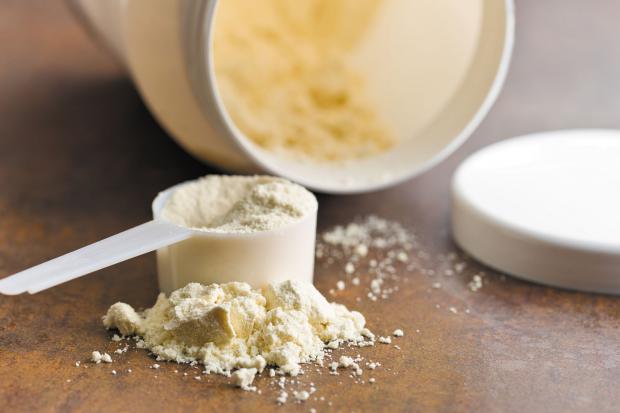
Breaking News
 The Decline Of Boys Participating In Youth Sports Has Led To A Generation Of Soft...
The Decline Of Boys Participating In Youth Sports Has Led To A Generation Of Soft...
 First Arrests Hint At How Billions In California Homeless Dollars Vanished...
First Arrests Hint At How Billions In California Homeless Dollars Vanished...
 Trump Refiles $15 Billion Defamation Lawsuit Against New York Times After Court Dismissal
Trump Refiles $15 Billion Defamation Lawsuit Against New York Times After Court Dismissal
 Can Diet-Changes Really Transform ADHD? One Family's Remarkable Discovery
Can Diet-Changes Really Transform ADHD? One Family's Remarkable Discovery
Top Tech News
 3D Printed Aluminum Alloy Sets Strength Record on Path to Lighter Aircraft Systems
3D Printed Aluminum Alloy Sets Strength Record on Path to Lighter Aircraft Systems
 Big Brother just got an upgrade.
Big Brother just got an upgrade.
SEMI-NEWS/SEMI-SATIRE: October 12, 2025 Edition
 Stem Cell Breakthrough for People with Parkinson's
Stem Cell Breakthrough for People with Parkinson's
 Linux Will Work For You. Time to Dump Windows 10. And Don't Bother with Windows 11
Linux Will Work For You. Time to Dump Windows 10. And Don't Bother with Windows 11
 XAI Using $18 Billion to Get 300,000 More Nvidia B200 Chips
XAI Using $18 Billion to Get 300,000 More Nvidia B200 Chips
 Immortal Monkeys? Not Quite, But Scientists Just Reversed Aging With 'Super' Stem Cells
Immortal Monkeys? Not Quite, But Scientists Just Reversed Aging With 'Super' Stem Cells
 ICE To Buy Tool That Tracks Locations Of Hundreds Of Millions Of Phones Every Day
ICE To Buy Tool That Tracks Locations Of Hundreds Of Millions Of Phones Every Day
 Yixiang 16kWh Battery For $1,920!? New Design!
Yixiang 16kWh Battery For $1,920!? New Design!
 Find a COMPATIBLE Linux Computer for $200+: Roadmap to Linux. Part 1
Find a COMPATIBLE Linux Computer for $200+: Roadmap to Linux. Part 1
Protein Powders and Shakes Contain High Levels of Lead

Much has changed since Consumer Reports first tested protein powders and shakes. Over the past 15 years, Americans' obsession with protein has transformed what had been a niche product into the centerpiece of a multibillion-dollar wellness craze, driving booming supplement sales and spawning a new crop of protein-fortified foods that now saturate supermarket shelves and social media feeds.
Yet for all the industry's growth and rebranding, one thing hasn't changed: Protein powders still carry troubling levels of toxic heavy metals, according to a new Consumer Reports investigation. Our latest tests of 23 protein powders and ready-to-drink shakes from popular brands found that heavy metal contamination has become even more common among protein products, raising concerns that the risks are growing right alongside the industry itself.
For more than two-thirds of the products we analyzed, a single serving contained more lead than CR's food safety experts say is safe to consume in a day—some by more than 10 times.
"It's concerning that these results are even worse than the last time we tested," said Tunde Akinleye, the CR food safety researcher who led the testing project. This time, in addition to the average level of lead being higher than what we found 15 years ago, there were also fewer products with undetectable amounts of it. The outliers also packed a heavier punch. Naked Nutrition's Vegan Mass Gainer powder, the product with the highest lead levels, had nearly twice as much lead per serving as the worst product we analyzed in 2010.
Nearly all the plant-based products CR tested had elevated lead levels, but some were particularly concerning. Two had so much lead that CR's experts caution against using them at all. A single serving of these protein powders contained between 1,200 and 1,600 percent of CR's level of concern for lead, which is 0.5 micrograms per day. Two others had between 400 and 600 percent of that level per daily serving. CR experts recommend limiting these to once a week.
The lead levels in plant-based products were, on average, nine times the amount found in those made with dairy proteins like whey, and twice as great as beef-based ones. Dairy-based protein powders and shakes generally had the lowest amounts of lead, but half of the products we tested still had high enough levels of contamination that CR's experts advise against daily use.
There's no reason to panic if you've been using any of the products we tested, or if you take protein supplements generally. Many of these powders are fine to have occasionally, and even those with the highest lead levels are far below the concentration needed to cause immediate harm. That said, because most people don't actually need protein supplements—nutrition experts say the average American already gets plenty—it makes sense to ask whether these products are worth the added exposure.
Consumers often assume supplements deliver health benefits without risks, says Pieter Cohen, MD, an associate professor of medicine at Harvard Medical School. "But that's not true."



